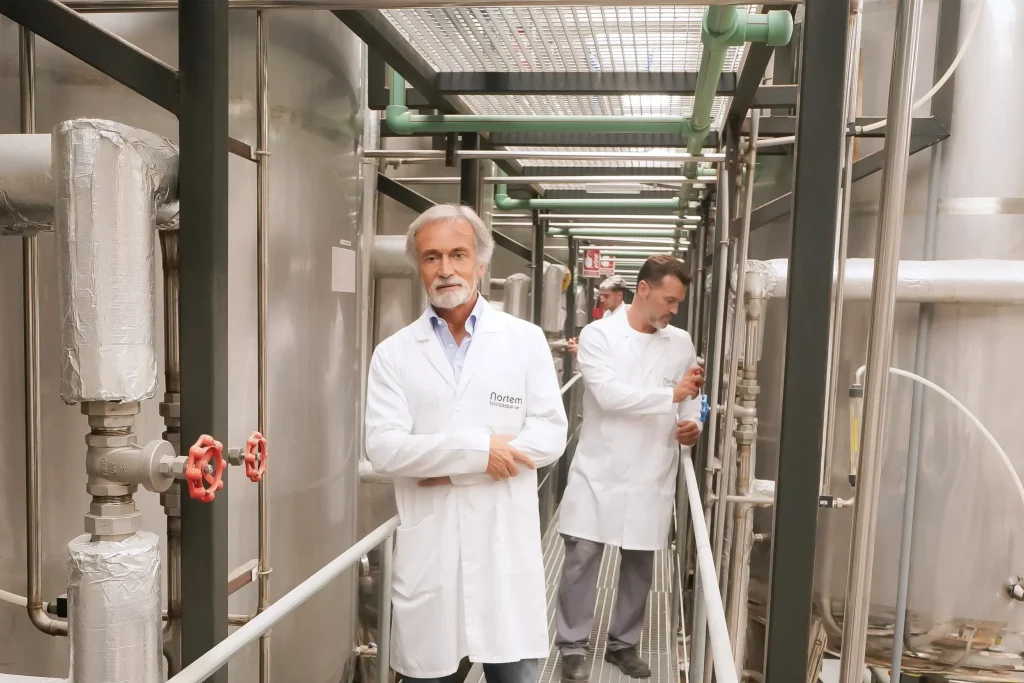
Nine out of ten SMEs (96%) believe that greater use of digital tools can help them sell more in the Single Market, according to the study ”The Single Market: A Path to Competitiveness and Resilience”.
The study “The Single Market: a path to competitiveness and resilience”, prepared by Implement Consulting Group in collaboration with Amazon and presented today at CEPYME headquarters, shows the importance of the Single Market for the success of Spanish SMEs, noting that two thirds of their goods and services are sold to customers in the European Union.
The study, which included a survey of more than 150 small and medium-sized Spanish companies, also revealed that the 44 % of Spanish exports to the European Union come from SMEs, and that 44 % of Spanish exports to the European Union come from SMEs. 98% of Spanish SMEs consider that access to the single market is essential for their business.
However, the study points out that concrete actions, such as regulatory simplification and regulatory harmonization among EU Member States, are needed to unlock the full potential of the European single market. Thus, the researchers pointed out that eliminating the existing barriers in the single market could boost the Spanish economy, creating 99,000 jobs and stimulating an investment of 1.2 billion euros due to an increase in the production of goods and associated services. There would also be benefits for consumers, as GDP per capita could increase by 0.6%, which would result in a permanent increase in the purchasing power of Spanish households.
Small and medium-sized enterprises are the backbone of Spain’s business fabric and economy, and account for 99.9% of all companies, 58% of the country’s GDP and 68% of total private sector employment. In this context, it is crucial to access the European single market and benefit from the free movement of goods and services.
Commenting on the relevance of this study, Cristina Vargas-Silva Implement Consulting highlighted that: “On its 30th anniversary, the Single Market continues to be seen as the engine of EU society and economy. For it to continue to be a key factor for the EU’s competitiveness, it is essential to further reduce barriers and foster integration. The value of this report is to capture, in a precise way, the call to action from Spanish SMEs, which point to the need to simplify and streamline European policies so that they can fully exploit the potential of the single market and compete on a global scale”.
During the round table, where the results of the study were discussed, Francisco Vidal, Director of Economics and Sectorial Policies of CEPYME pointed out that: “Spanish SMEs face challenges in the single market due to regulatory diversity and difficulties in accessing information and financing. It is key to join public-private forces to simplify processes and promote internationalization, offering advice and support in adapting to European regulations and facilitating collaboration networks that strengthen their presence in the single market”.
Bringing the single market closer to small and medium-sized companies
One of the aspects that the study stresses is the need to harmonize The company has also shown that the elimination of border barriers benefits small and medium-sized enterprises, which generally have fewer resources and capital to deal with regulatory burdens and administrative requirements that end up resulting in higher costs.
Thus, 71% of Spanish SMEs consider that regulatory and administrative obstacles increase their costs and 70% that regulatory differences erode their competitiveness. In addition, 66% acknowledged lower profits for these two reasons.
However, border regulation not only has an impact on business economics, it also has an impact on the procurement model. As a result, one in two Spanish SMEs (52%) believe that regulatory barriers prevent them from sourcing within the single market, and 25% even say that they greatly limit their opportunities for cross-border sourcing.
According to Amazon’s Vice President of EU Business Partner Services, Xavier Flamand: “This study shows that regulatory barriers are limiting the opportunities for Europe’s small and medium-sized businesses to take advantage of the full potential of the European Single Market. At Amazon, we believe that a strong, inclusive and sustainable single market is essential for an increase in the competitiveness of European businesses, and we want to contribute to strengthening it. By 2022, we are investing more than €8 billion in logistics, services, tools and training across Europe to help the 125,000 EU-based SMEs selling products on Amazon’s stores unlock their potential. More than 7 out of 10 of those SMEs generated intra-EU sales totaling more than €8.8 billion, demonstrating the importance of supporting their success for European economies.”
In this regard, Jose Luis Vázquez, president of Nortem BioGroup said upon learning the results of the study: “It is important for the EU to provide itself with mechanisms that adapt to the needs of SMEs, reducing the time it takes to reach a new country or establishing one-stop-shop systems, among others. Companies like Nortem Bio Group are developing and taking innovative and sustainable products beyond our borders. A closer single market would be key for SMEs to continue to make a contribution in terms of innovation and sustainability”.
Supporting digitization to promote internationalization
The study also highlights how digitalization plays a vital role in enabling SMEs to drive growth and generate employment opportunities through the positive impact of its application to their business strategies. By adopting digital technologies, SMEs are better able to operate in international markets, streamline their operations and improve their export capabilities.
Thus, compared to other European SMEs, Spanish SMEs show better figures in terms of their share of e-commerce sales, with 25% of Spanish SMEs selling on the Internet compared to 18% of the European average, according to the Digital Intensity Index.
In line with this, the survey data reveals that 96% of Spanish SMEs believe that greater use of digital tools can help them sell more in the single market.
However, despite the fact that, according to the update of the EU’s Digital Economy and Society Index (DESI), Spain has been the most successful country in the world in improved its position and is now above the EU average (score of 61 versus an EU average of 52), there is still significant room for improvement.
Among the main areas of improvement identified by small and medium-sized companies are the improvement of digital infrastructures, greater digitization of public services and promoting an increase in human capital in the field of information and communication technologies to advance in their digitization.
In this regard, Carlos Gutiérrez, CEO of AIS Building Outnovation said: “At AIS we make a continuous effort to energize and promote the integration of digitization within the value chain in which we operate. We note that for companies of our size to be able to take advantage of the single market for their internationalization, it is essential that both the drafting of regulations and, especially in the implementation of harmonizations, there is a real focus on eliminating barriers to the competitiveness of small and medium-sized enterprises”.
Proposals to strengthen the role of SMEs in the single market
In conclusion, the report highlights a number of specific policy initiatives in different areas to strengthen the effective functioning of the single market and its positive impact on Spanish small and medium-sized enterprises, among which the following can be highlighted:
- Adopt an ambitious strategy for the single market that puts it back at the forefront of the EU’s integration, ecological transition and innovation project.
- Conduct a data flow test of all EU regulations that recognizes the principle of data protection, but avoids creating unjustified burdens on SMEs.
- Strengthen the use of the Regulatory Improvement Policy toolkit by integrating its application in the design of new regulations.
- Identify and remove regulatory barriers to trade in climate goods and services in the single market.
- Design the European digital product passport in a way that facilitates the circular work of companies.
- Create the conditions for the development of easy, fast, reliable and low-cost cross-border payments, both for payments in euro and in other currencies.
According to the Implement Consulting study, the Single Market has, over the last 30 years, provided an attractive and stable environment for European companies and has been key to the success of their SMEs. According to the Implement Consulting study, the Single Market has provided, over the last 30 years, an attractive and stable environment for European businesses, and has been key to the success of their SMEs. However, more rigorous harmonisation and implementation is needed for it to reach its full potential, in particular as regards small and medium-sized enterprises.
To find out more about our vision of the single market, you can read our Ideas for an open and competitive single market.



